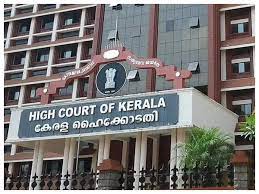 The Kerala High Court in the case of M/S. THARAYIL MEDICALS VERSUS THE DEPUTY COMMISSIONER AUDIT DIVISION-IV, THRISSUR, vide WA NO. 627 OF 2025 dated 08.04.2025, has addressed the illegality of composite show cause notices under Section 74 of the CGST/SGST Act for multiple assessment years. The Court herein held that the proper officer must issue separate SCNs for each FY to preserve jurisdiction and natural justice. Composite notices could result in procedural illegality, especially where different legal provisions i.e. Section 73/74 may apply across years.
The Kerala High Court in the case of M/S. THARAYIL MEDICALS VERSUS THE DEPUTY COMMISSIONER AUDIT DIVISION-IV, THRISSUR, vide WA NO. 627 OF 2025 dated 08.04.2025, has addressed the illegality of composite show cause notices under Section 74 of the CGST/SGST Act for multiple assessment years. The Court herein held that the proper officer must issue separate SCNs for each FY to preserve jurisdiction and natural justice. Composite notices could result in procedural illegality, especially where different legal provisions i.e. Section 73/74 may apply across years.
Facts of the Case: In this case, the petitioner was served with a show cause notice under Section 74 of the CGST/SGST Act, proposing to initiate proceedings under Section 74 (10) of the CGST/SGST Act for the assessment years 2017-2018, 2018-2019, 2019-2020, 2020-2021 and 2021-2022. In such notice, the proper officer concluded that, for different assessment years, the appellant/writ petitioner had applied incorrect HSNs, and therefore, the rate of tax applied is incorrect and thus proposed a reassessment finding that there is a wrong application of tax rate.
The Petitioner challenged such notice citing jurisdictional and procedural impropriety. Referred judgments in the case of Lakshmi Mobile Accessories (Kerala high Court -2025), M/s. Bangalore Golf Club v. ACCT (Karnataka High Court), M/s. Titan Company Ltd. v. Joint Commissioner (Madras High Court), wherein it was held that the composite orders clubbing different financial years are impermissible under Section 74 and Each FY must be individually assessed based on separate facts, limitations, and causes of action.
However, the department referred Riocare India Pvt. Ltd. v. AC CGST (Bombay High Court), wherein it was held that no express bar in CGST/SGST Act prevents issuance of a composite show cause notice. Thus, the department argued it is administratively efficient and does not prejudice the assessee if final orders are passed separately.
Held That: The Court observed the legal provisions of Section 74 of the CGST Act, 2017, and stated that Section 74(1), (2), and (10) cumulatively indicate that each financial year stands on its own with separate triggers, facts, and limitation periods. Consequently, the proper officer must issue separate SCNs for each FY, rather than clubbing them into one composite notice.
Also, Section 74(10) links the 5-year limitation with the annual return of each FY. Hence, the adjudication period is year-specific. A composite SCN risks breaching this limitation for some years, thereby vitiating the proceedings. Further, Each FY may involve distinct factual defenses (like HSN classification, invoices etc). A composite SCN hinders the assessee’s ability to present explanations for each year and may result in procedural confusion.
The Court also stated that show cause notices issued under Section 74(1) requires the officer to be subjectively satisfied that evasion occurred due to fraud/suppression for a particular FY. This satisfaction cannot be clubbed for different years as the facts and legal contexts vary. Therefore, subjective satisfaction and liability must be year-specific.
The Court quashed SCNs for FYs 2018–2022, sustained only for FY 2017–18. Directed department to issue Fresh SCNs for remaining years if limitation permits. Time spent in writ proceedings excluded from computing limitation under Section 74(10).
To read the complete judgment 2025 Taxo.online 513


